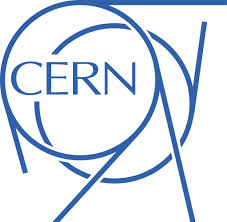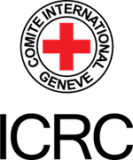Acronym: UNIDIR
Established: 1980
Address: Palais des Nations, 1211 Geneva 10, Switzerland
Website: https://www.unidir.org/
Stakeholder group: International and regional organisations
- Directed Energy Weapons: The ‘new’ Option for Militaries
- 2021 Innovations Dialogue: Deepfakes, Trust and International Security
- Drones and Counter-Drone Technology: An Escalating Dynamic
- New Technological Opportunities to Bolster Treaty Compliance
- Founded in 1980, UNIDIR is a voluntarily funded, autonomous institute within the United Nations. One of the few policy institutes worldwide focusing on disarmament, UNIDIR generates knowledge and promotes dialogue and action on disarmament and security. Based in Geneva, UNIDIR assists the international community to develop the practical, innovative ideas needed to find solutions to critical security problems.
Digital activities
The research areas of UNIDIR’s SecTec focus on cybersecurity, such as threats and vulnerabilities related to information and communications technologies (ICTs), and the use of new technologies such as artificial intelligence (AI) applications in warfare. SecTec has supported the UN processes on ICTs Group of Governmental Experts (GGE) and the Open-Ended Working Group (OEWG) and continues to support the OEWG on security of and in the use of ICTs (2021–2025). It focuses on research and awareness raising on this topic with a broad range of stakeholders and maps the cybersecurity policy landscape.
Digital policy issues
Cybersecurity
SecTec builds knowledge and raises awareness of the security implications of new and emerging technologies. Cyber stability is one area of focus for UNIDIR, the work of which supports the implementation of specific norms and recommendations previously agreed by member states. It also explores options to strengthen cyber stability and crisis management mechanisms. UNIDIR provides technical and expert advice to the chairpersons of the UN GGE and OEWG on norms, international law, confidence-building measures, capacity building, cooperation, and institutional dialogue. The annual Cyber Stability Conference brings various stakeholders together to promote a secure and stable cyberspace and in particular the role of the UN processes such as the OEWG on Security of and in the Use of Information and Communications Technologies (2021–2025).
Launched in 2019, the Cyber Policy Portal is an interactive map of the global cyber policy landscape. It provides profiles of the cyber policies of all 193 UN member states, in addition to various intergovernmental organizations and multi-stakeholder instruments and other initiatives. This confidence-building tool supports informed participation by relevant stakeholders in all policy processes and promotes trust, transparency, and cooperation in cyberspace. The updated version of the portal was launched in May 2022, providing several new features, such as full text search, and is available in all UN official languages.
Accessible from the portal, the National Survey of Implementation of United Nations Recommendations of Responsible Use of ICTs by States in the Context of International Security collates national take-up of the recommendations from the 2015 GGE report, with a view to assisting assessment of their further development and implementation. The survey allows UN member states to conduct regular self-assessments of national implementation of the recommendations.
It can also support UN member states in responding to an invitation from the UN General Assembly (UNGA) to continue to inform the Secretary-General of their views and assessments on the issue of developments in the field of ICTs in the context of international security.
It supports transparency, information sharing, and confidence building by giving UN member states the possibility of making the results of the survey publicly available on their national profiles on UNIDIR’s Cyber Policy Portal.
The Cyber Policy Portal Database provides direct access to documents and references through the profiles of all 193 UN member states on the Cyber Policy Portal. The database allows searching across several categories, including state, type of document, topic, issuing body, and more.
Publication
- Drawing Parallels: A Multi-Stakeholder Perspective on the Cyber PoA Scope, Structure and Content
- Use of ICTs by States: Rights and Responsibilities Under the UN Charter
- Unpacking Cyber Capacity-Building Needs: Part I. Mapping the Foundational Cyber Capabilities
- Unpacking Cyber Capacity-Building Needs: Part II. Introducing a Threat-Based Approach
- Operationalizing a Directory of Points of Contact for Cyber Confidence-Building Measures
- Towards a More Stable and Secure ICT Environment: Unpacking Inter-State Cooperation (Conference Summary Report)
- Wading Murky Waters: Subsea Communications Cables and Responsible State Behaviour
- Cyber Stability Conference: Protecting Critical Infrastructure And Services Across Sectors
- India’s International Cyber Operations: Tracing National Doctrine and Capabilities
- A Taxonomy of Malicious ICT Incidents
- 2021 Cyber Stability Conference: Towards a More Secure Cyberspace
- Enhancing Cooperation to Address Criminal and Terrorist Use of ICTs
- Non-Escalatory Attribution of International Cyber-Incidents: Facts, International Law and Politics
- Due Diligence in Cyberspace: Normative Expectations of Reciprocal Protection of International Legal Rights
- ICTs, International Security, and Cybercrime
- Applying Chapters VI and VII of the United Nations Charter in the Cyber Context
- International Cyber Operations: National Doctrines and Capabilities Research Paper Series
- International Cooperation to Mitigate Cyber Operations Against Critical Infrastructure
- Supply Chain Security in the Cyber Age: Sector Trends, Current Threats and Multi-Stakeholder Responses
Events
- Digital Tools for Disarmament: An Overview of UNIDIR Portals and Databases
- Multi-Stakeholder Dialogue on Internet Fragmentation
- Unpacking Cyber Capacity-Building Needs: From Research to Action
- Technology Breakfast: Quantum and Cybersecurity
- Protecting Global Internet Infrastructure: A Multi-Stakeholder Dialogue
- Multi-Stakeholder Dialogue: Subsea Communications Cables and Responsible State Behaviour – https://unidir.org/event/multi-stakeholder-dialogue-subsea-communications-cables-and-responsible-state-behaviour/
- 2023 Cyber Stability Conference – Use of ICTs by States: Rights and Responsibilities Under the UN Charter
- Side Event: A Taxonomy of Malicious ICT Incidents
- 2022 Cyber Stability Conference: Protecting Critical Infrastructure and Services Across Sectors
- International Cyber Crisis Management Regional Workshop Series
- National Survey of Implementation of United Nations Recommendations on Responsible Use of ICTs by States in the Context of International Security
- Open-ended Working Group Cyber 201: Framework Recap
- 2021 Cyber Stability Conference: Towards a More Secure Cyberspace
- ICTs, International Security, and Cybercrime: understanding their intersection for better policy making
- 2020 Cyber Stability Conference: Exploring the Future of Institutional Dialogue
Artificial intelligence
AI and the weaponization of increasingly autonomous technologies is one of UNIDIR’s current research areas. It aims to raise awareness and build capacities of various stakeholders, including member states, technical communities, academia, and the private sector. Research on AI covers a broad range of topics from human decision-making, autonomous vehicles, and swarm technologies.
UNIDIR SecTec recently launched the Artificial Intelligence Policy Portal. This tool gathers available information at the national, regional, and international levels on policies, processes, and structures that are relevant to the development and use of AI for military or security purposes. The Portal has been developed to support transparency, information sharing, and confidence building in the field of AI
Publications
- AI and International Security: Understanding the Risks and Paving the Path for Confidence-Building Measures
- Artificial Intelligence Beyond Weapons: Application and Impact of AI in the Military Domain
- Proposals Related to Emerging Technologies in the Area of Lethal Autonomous Weapons Systems: A Resource Paper (updated)
- The 2022 Innovations Dialogue: AI Disruption, Peace and Security
- Uncrewed Aerial, Ground, and Maritime Systems: A Compendium
- Towards Responsible AI in Defence: A Mapping and Comparative Analysis of AI Principles Adopted by States
- Confidence-Building Measures for Artificial Intelligence: A Framing Paper
- Uncrewed Maritime Systems: A Primer
- Uncrewed Aerial Systems: A Primer
- Uncrewed Ground Systems: A Primer
- Human-Machine Interfaces in Autonomous Weapon Systems
- UNIDIR on Lethal Autonomous Weapons
- Table-Top Exercises on the Human Element and Autonomous Weapons System
- Known Unknowns: Data Issues and Military Autonomous Systems
- The Black Box, Unlocked: Predictability and Understandability in Military AI
- Modernizing Arms Control: Exploring Responses to the Use of AI in Military Decision-Making
- The Human Element in Decisions About the Use of Force
Events
- Digital Tools for Disarmament: An Overview of UNIDIR Portals and Databases
- Risks of AI (Report Launch)
- The Application and Impact of Artificial Intelligence Beyond Weapons (Publication Launch)
- 2023 Innovations Dialogue: The Impact of Artificial Intelligence on Future Battlefields
- Empowering AI Policy: Introducing the UNIDIR Artificial Intelligence Policy Portal
- Technological Advances of Uncrewed Systems in the Air, Land and Maritime Domains
- Human–AI Teaming
- 2022 Innovations Dialogue: AI Disruption, Peace, and Security
- Towards Ethically Driven Robotics and Automation Systems
- Predictability and Understandability in Military AI
- The 2021 Innovations Dialogue: Deepfakes, Trust and International Security
- Known Unknowns: Data Issues and Military Autonomous Systems
- Webinar series on the technological, military and legal aspects of lethal autonomous weapon systems
- Predictability and Understandability in Lethal Autonomous Weapons
Emerging technologies
UNIDIR’s research equally focuses on security dimensions of innovations in science and technology. In synergy with the Secretary-General’s Agenda for Disarmament and recent UNGA resolutions on the role of science and technology in the context of international security, UNIDIR proactively identifies and examines emerging and over-the-horizon innovations. It analyses potential implications for international security and facilitates dialogue among relevant stakeholders to encourage cross-sector cooperation.
Publications
- Exploring the Use of Technology for Remote Ceasefire Monitoring Aad Verification
- 2021 Innovations Dialogue Conference Report
- Exploring Distributed Ledger Technology for Arms Control and Non-Proliferation: A Primer
- Exploring Science and Technology Review Mechanisms Under the Biological Weapons Convention
- Advances in Science and Technology in the Life Sciences
- Magnifying Nanomaterials
Events
- Introduction to Wargaming
- Quantum Technologies and Their Implications for International Peace and Security
- Exploring Directed Energy Weapons and the Implications of Their Use Under International Law
- Preparing for the Future of International Peace and Security/
- Brain-Computer Interfaces Webinar Series, Part 3: Legal and Ethical Challenges
- Brain-Computer Interfaces Webinar Series, Part 2: BCIs in the Context of International Security: Military Uses, Applications and Risks
- Brain-Computer Interfaces Webinar Series, Part 1: Existing and Near-Term Uses of BCIs
- Virtual Launch of the Technology and Ceasefires Publication: Exploring the Use of Technology for Remote Ceasefire Monitoring and Verification
- Exploring Science and Technology Review Mechanisms under the Biological Weapons Convention
- New Technological Opportunities to Bolster Treaty Compliance
- Innovations in Life Sciences
- The 2020 Innovations Dialogue: Life Sciences, International Security and Disarmament
- Scientific and Technological Responses to Pandemics: Drawing Parallels Between International Security and Public Health
Digital tools











Social media channels
Facebook @unigeneve
Instagram @unigeneve, @unigenumerique
LinkedIn @universite-de-geneve
Twitter @UNIGE_en, @unigenumerique
YouTube @Université de Genève